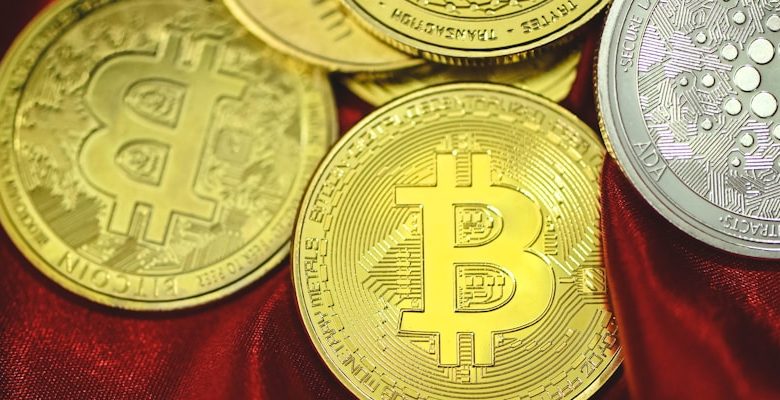How Decentralized Finance is Empowering Underbanked Communities

- Understanding Decentralized Finance (DeFi)
- Challenges Faced by Underbanked Communities
- The Role of DeFi in Financial Inclusion
- Empowering Underbanked Communities through Decentralized Finance
- Case Studies of DeFi Impact on Underbanked Communities
- Future Prospects of DeFi in Addressing Financial Exclusion
Understanding Decentralized Finance (DeFi)
Decentralized Finance (DeFi) is a revolutionary concept that is changing the way financial services are accessed and utilized. DeFi refers to the use of blockchain technology and smart contracts to provide financial services in a decentralized manner, without the need for traditional financial intermediaries such as banks.
One of the key benefits of DeFi is its ability to empower underbanked communities by providing them with access to a wide range of financial services that were previously out of reach. This includes services such as lending, borrowing, trading, and more, all of which can be accessed directly through decentralized platforms.
By removing the need for traditional intermediaries, DeFi makes financial services more accessible and affordable for underbanked communities. This can help to reduce the reliance on predatory lenders and other exploitative financial institutions, allowing individuals to take control of their financial futures.
Furthermore, DeFi platforms are often open and permissionless, meaning that anyone with an internet connection can access and use them. This is particularly beneficial for underbanked communities in remote or underserved areas, who may not have access to traditional banking services.
Overall, DeFi has the potential to democratize finance and empower underbanked communities by providing them with the tools and resources they need to participate in the global economy. As DeFi continues to grow and evolve, it is likely to play an increasingly important role in improving financial inclusion and empowerment for all.
Challenges Faced by Underbanked Communities
Underbanked communities face a myriad of challenges in accessing traditional financial services. These challenges often stem from a lack of proximity to physical bank branches, limited financial literacy, and a lack of proper identification documents. Additionally, underbanked individuals may have limited access to credit or may be subject to high fees and interest rates.
Furthermore, underbanked communities may face discrimination or exclusion from the traditional banking system, leading to a cycle of financial insecurity and limited economic opportunities. Without access to basic financial services, individuals in underbanked communities may struggle to save money, access affordable credit, or build a credit history.
Decentralized finance (DeFi) offers a potential solution to many of the challenges faced by underbanked communities. By leveraging blockchain technology, DeFi platforms can provide access to a wide range of financial services, including lending, borrowing, and savings, without the need for a traditional bank account.
The Role of DeFi in Financial Inclusion
Financial inclusion is a critical issue that affects many underbanked communities around the world. Decentralized Finance (DeFi) has emerged as a powerful tool in addressing this challenge by providing access to financial services without the need for traditional banking institutions.
One of the key roles of DeFi in promoting financial inclusion is its ability to offer a wide range of financial products and services to individuals who may not have access to traditional banking. By utilizing blockchain technology, DeFi platforms can facilitate peer-to-peer lending, decentralized exchanges, and other financial services that were previously unavailable to underbanked communities.
Moreover, DeFi allows individuals to participate in the global economy without relying on intermediaries or centralized institutions. This level of financial autonomy can empower underbanked communities to take control of their own finances and access opportunities that were previously out of reach.
In addition, DeFi can help reduce the cost of financial services for underbanked communities by eliminating the need for costly intermediaries and streamlining processes. This can make it more affordable for individuals to access essential financial services such as loans, savings accounts, and insurance.
Overall, the role of DeFi in financial inclusion is crucial in empowering underbanked communities to access the financial tools they need to improve their economic well-being. By leveraging decentralized technologies, DeFi has the potential to revolutionize the way individuals interact with the global financial system and create more inclusive opportunities for all.
Empowering Underbanked Communities through Decentralized Finance
Decentralized finance (DeFi) is revolutionizing the way underbanked communities access financial services. By leveraging blockchain technology, DeFi platforms are providing opportunities for individuals who have been historically excluded from the traditional banking system.
- One of the key benefits of DeFi is its accessibility. Anyone with an internet connection can participate in DeFi protocols, without the need for a bank account or credit history.
- Through DeFi, underbanked communities can access a wide range of financial services, including lending, borrowing, and trading, all without relying on traditional financial institutions.
- Furthermore, DeFi platforms are often more transparent and secure than traditional banking systems, providing a level playing field for all participants.
By empowering underbanked communities with access to decentralized finance, we can help bridge the financial inclusion gap and create a more equitable financial system for all.
Case Studies of DeFi Impact on Underbanked Communities
Case studies have shown the significant impact of decentralized finance (DeFi) on underbanked communities around the world. These examples highlight how DeFi is providing financial services to those who have been excluded from traditional banking systems.
One case study comes from a rural village in Africa where residents have limited access to banks. Through DeFi platforms, individuals in this community are now able to access loans, savings accounts, and insurance products without the need for a traditional bank account.
Another example is seen in a low-income neighborhood in a major city where many residents do not have the required documentation to open a bank account. DeFi protocols have enabled these individuals to participate in lending and borrowing activities, improving their financial stability and opportunities for growth.
Furthermore, in a small island community where banking services are scarce, DeFi has enabled residents to engage in peer-to-peer lending and other financial transactions securely and efficiently.
Overall, these case studies demonstrate how DeFi is transforming the financial landscape for underbanked communities, providing them with access to essential financial services that were previously out of reach.
Future Prospects of DeFi in Addressing Financial Exclusion
The future outlook for decentralized finance (DeFi) in addressing financial exclusion is promising. DeFi has the potential to revolutionize the way underbanked communities access financial services, providing them with opportunities that traditional banking systems have failed to deliver. By leveraging blockchain technology, DeFi platforms offer a more inclusive and transparent financial ecosystem that is accessible to anyone with an internet connection.
One of the key benefits of DeFi in addressing financial exclusion is its ability to provide individuals with greater control over their finances. Through decentralized lending and borrowing protocols, underbanked communities can access credit without having to rely on traditional banking institutions. This not only empowers individuals to take control of their financial futures but also helps them build a credit history that can open up new opportunities for them in the future.
Moreover, DeFi platforms enable individuals to access a wide range of financial services, such as savings, investments, and insurance, without the need for a bank account. This level of financial inclusivity is crucial for underbanked communities who have been historically marginalized by traditional banking systems. By eliminating the need for a physical bank branch, DeFi makes it easier for individuals in remote or underserved areas to access the financial tools they need to thrive.
In addition to providing greater financial access, DeFi also promotes financial literacy among underbanked communities. Through educational resources and community-driven initiatives, DeFi platforms empower individuals to make informed decisions about their finances and navigate the complexities of the digital economy. This not only helps individuals improve their financial well-being but also fosters a sense of economic empowerment within underbanked communities.
Overall, the future prospects of DeFi in addressing financial exclusion are bright. As the technology continues to evolve and mature, we can expect to see even greater levels of financial inclusivity and empowerment for underbanked communities around the world. By harnessing the power of blockchain and decentralized systems, DeFi has the potential to transform the way we think about finance and ensure that no one is left behind in the digital economy.



